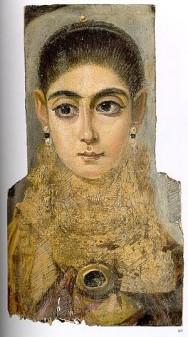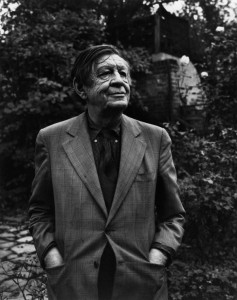 Look at these faces. They were once like us.
Look at these faces. They were once like us.
I have not been able to say it clearly. It has remained a welter of deeply felt emotions, fragments of sentences, ideas that wander in and out of focus. In our profoundly alienated, dissonant and dreck-filled political and cultural moment, articulating this idea seems even more important to me because it might constitute a first principal, a moral and even an aesthetic baseline, a secure home from which all other beliefs and creeds might be examined.
A mummy portrait from the Faiyum Basin of Egypt, 3rd century A.D
I just discovered that the American novelist, Russell Banks, may have captured what has eluded me: “The serious novelist … affirms the transcendent value of the individual and that individual’s private consciousness of being briefly alive…. At the center of every morally ambitious novel is a vision of the supreme worth of one’s secret, private consciousness… (59).”*
Every person, the dead and the living, of all races and stations in life, was or is an alpha point, a first on the most fundamental scale of measurement – no one will ever again possess our genetic code, our inner voice, our assortment of secrets, vices and virtues, our regard for and memories of a panorama of moments in specific times and places, moments that have never occurred and will never repeat. And, most importantly, we know that all these primal qualities are transitory. They will be extinguished with our deaths.
 We know that we are alive and that we will die, and flowing from those facts comes a determination for most of us that we want to make our time and actions count for something. Second, in being alive we must choose, and by their nature choices create moral pressures and structures: There is little time. What good can I do? What might I still see and accomplish? And in addition, because we are alive, I think a kind of plea becomes embedded in us: Let me stay attuned to everything – this sky, these children, this bird, these sisters, this brother and mother and wife. There is a fuel in this awareness, a propulsive ambition to move, see, do, remember … repeat.
We know that we are alive and that we will die, and flowing from those facts comes a determination for most of us that we want to make our time and actions count for something. Second, in being alive we must choose, and by their nature choices create moral pressures and structures: There is little time. What good can I do? What might I still see and accomplish? And in addition, because we are alive, I think a kind of plea becomes embedded in us: Let me stay attuned to everything – this sky, these children, this bird, these sisters, this brother and mother and wife. There is a fuel in this awareness, a propulsive ambition to move, see, do, remember … repeat.
W.H. Auden by Yousuf Karsh
In becoming aware of the primacy of our curious voice, our one beating, mysterious, slippery mind, our one body in movement, our singular, fragile, tremulous, sweet sweet life, it would be nice to think that this experience would provoke us to acknowledge the cherished worth of another’s life. However, historical evidence tells us that a shock is required. We often need to be knocked down so as to see others. We are in an unremitting struggle to not fall into a blind existence, a constricted perspective that shuts others out.
Protected by his power and rank, King Lear cannot see the desperate members of his kingdom, the beggars by the road, the “poor, bare forked animals.” ** When he has lost everything and has been stripped down to a shivering, soaked old man, then he is able to offer his own version of a prayer:
Poor naked wretches, whereso’er you are,
That bide the pelting of this pitiless storm,
How shall your houseless heads and unfed sides,
Your loop’d and window’d raggedness, defend you
From seasons such as these? **
 In suffering, he comes to understanding. In becoming broken, he awakens.
In suffering, he comes to understanding. In becoming broken, he awakens.
“Madame X” by John Singer Sargent
The son of a police officer, a reader of histories and witness myself to any number of cruel actions and their aftermath, I understand that human beings are a fallen order of creatures capable of monstrous deeds. But I have also been witness to unremarkable, casual, daily kindnesses, small mercies, and feats of astonishing altruism and generosity, and thus I choose to come down on the side of the essential decency of most of us, and thus I am under an obligation to see another and the next and the next as fellow travelers, as companions, as like myself, whose inner voices and dreamings never pause until the common end.
*Burn This Book, edited by Toni Morrison: “Notes On Literature And Engagement” by Russell Banks
**King Lear by Shakespeare: Act III, scene iv.
Baldassar Castiglione by Raphael Santi
